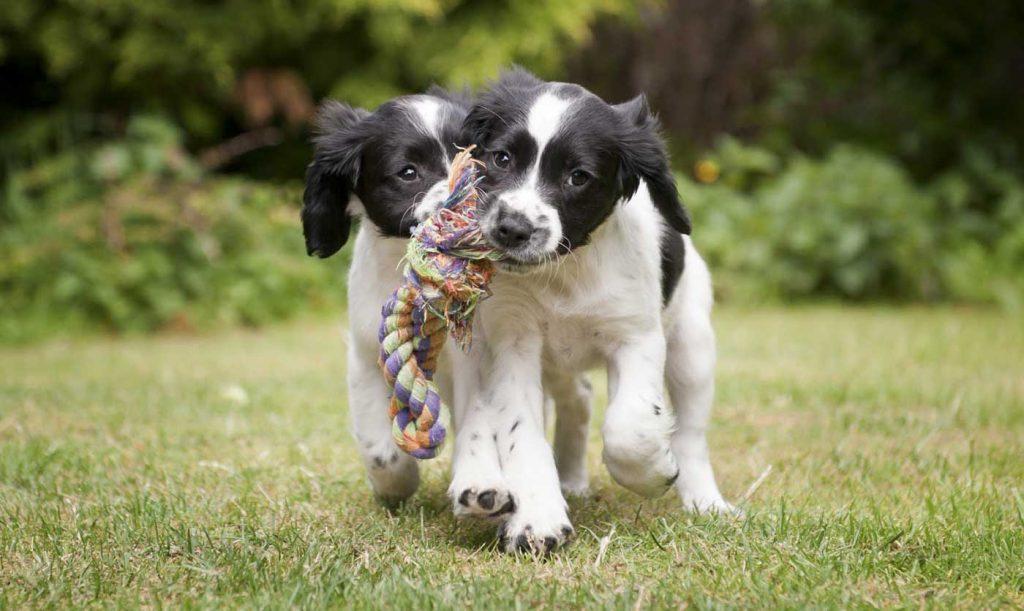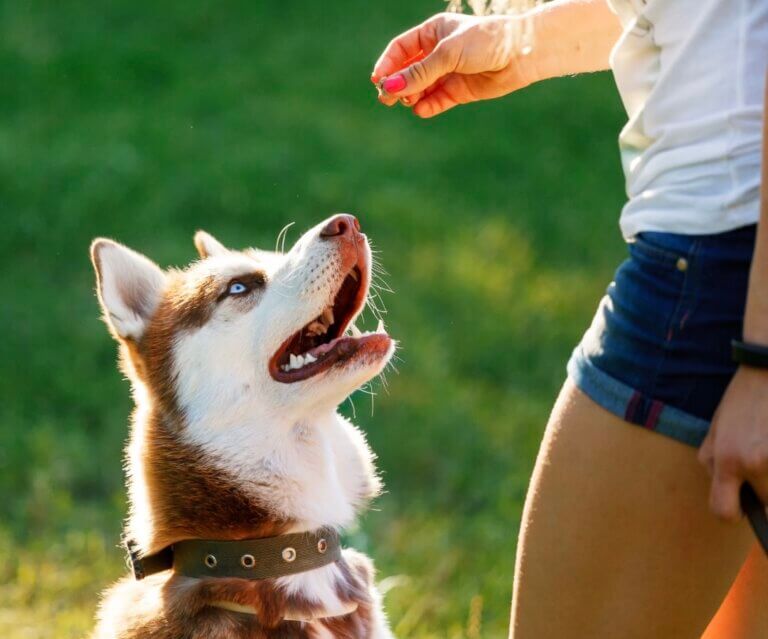Are you looking for a puppy school?
Learn how to avoid what we call the four-week puppy school trap
We call it a trap, as it lulls new puppy owners into a false sense of security that their puppy will be trained after four weeks. During these courses, you will teach your puppy how to sit, drop etc, toilet training, puppy socialisation, grooming, feeding, biting, and the list goes on.
To be honest, I can’t blame brand new puppy owners for buying into this; I mean, $100-$400 4-6 weeks later, and their puppy is apparently finished training; it almost sounds too good to be true and which it is.
Expecting it to take only a few weeks to train your puppy is the same as expecting your child to be educated after finishing preschool; although it’s a great start, it’s still a long road ahead!
Truth be told, even the world’s greatest dog trainers, despite their best efforts couldn’t have a puppy reliably trained in that amount of time. Training your dog is more than a couple of weeks’ commitment. Our Melbourne puppy school programs are tailored towards real-world obedience and behaviour skills that are crucial to having a well-adjusted pet.
Only the most experienced trainers should run puppy class
The training your puppy receives during it’s critical development periods (8-20 weeks) are essential to having a well-rounded adult dog. Most issues seen in adult dogs are a result of experiences or lack of training during the first 6 months of life.
Unfortunately most puppy schools are run by volunteer instructors, Vet nurses or junior trainers. Although well-intentioned, they usually have very little knowledge on dog training and behaviour and can do more harm than good. When it comes to training your puppy, you want the best possible teacher that money can buy, as you only get one shot at training your puppy. Our Melbourne puppy school is run by our most experienced trainers who are all government-accredited, so you can rest assured that your puppy is receiving the expert attention it deserves.
Puppy School shouldn’t be a free for all
Another downside of the “4-week” puppy school, is that the start of each class generally starts off with a puppy free for all, with all the puppies running around off leash which is very counterproductive towards your end goal. As unfortunately, most inexperienced trainers who run these classes, believe that “socialisation” means nothing more than playing with other puppies. What your puppy experiences during their critical periods, has lasting effects. I routinely see older dogs, that are fear aggressive toward other dogs due to bad free for all experiences at puppy school.
Every puppy is different and needs to be trained accordingly
The vast majority of these poorly run puppy schools unfortunately have a one size fits all approach when it comes to training your puppies, and a set curriculum your puppy needs to fall into. This often leads to disaster and much embarrassment for new puppy owners as they do their best to follow what the instructor is saying, but they have no success in doing so. The class you attend needs to be flexible with what they teach and the methods they use, so that way you can find what works best for you and your pup. You want to ensure that your trainer has knowledge and experience with training all breeds of dogs to assist you with your puppy and the challenges you’re facing.
Do your research
When looking into a well-run and comprehensive puppy school, take the time to find out who is highly recommended and has the experience needed. As they say, quality is always remembered long after the price is forgotten, so be prepared to invest in your puppies’ education, as cheap training is usually just that. You can view our dog training reviews on Google, to see why our clients believe we offer the best dog training service around.
Give your puppy the training they deserve!
To give your puppy the best possible start in life and find out why we are recommended as Melbourne’s leading puppy and training school visit our Puppy School page our Contact us to get started.



4 Comments
This is all to true, unfortunately as a dog trainer myself the first thing I here from owners when I get a call about their dogs bad behaviour, and by now the dog is 2 or more years old. the first thing they say to me is..” but I went and did a 4 or 5 week coarse of puppy school. Dog training is on going. And in a dogs life the first two to three years of their learning is paramount to how they will be in their adult life. So I always tell my clients to put in the hard yards for that duration and if they do most times the dog becomes a well adjusted member of their Family and the community.
Dear Geraldine,
Thank you for the lesson last week; Dougal is now sitting on his mat when told to! Unfortunately we will not be at the last lesson this year as I will be away. Could you give me some ideas for training during the January break.
please?
Elizabeth Scrivenor
Hi there,
My name is Nicole
I am picking up a mastiff pup at 8 weeks old end of January.
I am wanting to see how much I am looking at for training puppy/adult as I am aware he will be a big dog and I’m walking to do whatever I have to go ensure what’s best for him and my family.
Do you do payment options, pay as we go/weekly and how often do you recommend training for a puppy.
Great read!
I was a little nervous to read this at first since I am an instructor for one of these types of classes, but what you say is very true and raises many of the concerns I have with other operators.
In our classes, we never claim you’ll have a ‘trained’ puppy in 4 weeks, and I stress this to everyone who signs up. The point of a puppy class, at least in my mind, is to equip owners with some basic knowledge on raising/training a puppy and to give them the confidence to continue learning and training on their own or with the help of a professional trainer. A lot of new owners are more willing to work on ‘problem’ puppy behaviours if they have some sort of guidance, and are less likely to resort to drastic measures or give up on training altogether.
And I agree entirely with what you said about the classes that let puppies run around off-leash in a free for all….. it’s something I know a lot of puppy class operators do and I often have to explain to new owners why I don’t allow it in my class. I’ve seen too many older dogs that have developed severe anxiety/fear aggression after these ‘socialisation’ free for alls.
Puppy classes aren’t for everyone, and for experienced owners probably aren’t all that useful, but in my experience, they aren’t the sort of people who sign up for classes anyway, so I do believe they do have a place, even if some of them need improvement.